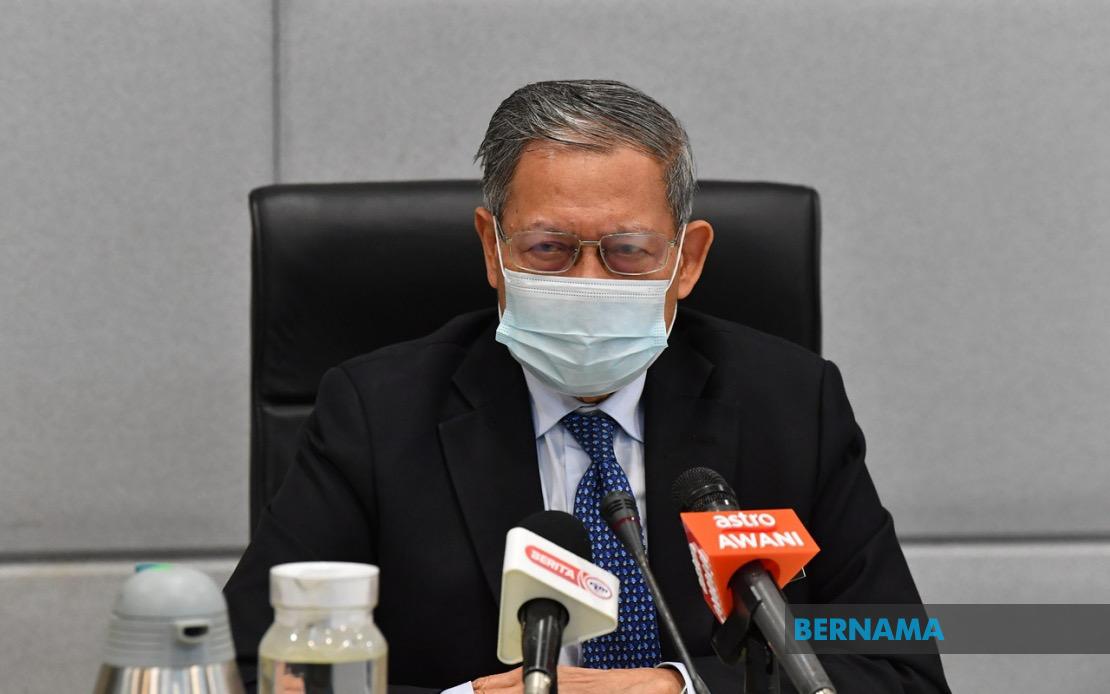News
EPU in final stage of formulating National Energy Policy - Mustapa

KUALA LUMPUR, March 23 -- The Economic Planning Unit (EPU) is in the final stage of formulating Malaysia's National Energy Policy, said Minister in the Prime Minister’s Department (Economy) Datuk Seri Mustapa Mohamed.
He said the document, together with specific action plans, would be launched in the second half of 2021 and would serve as the planning and development agenda for the country’s energy sector as it transitions towards a low-carbon future.
"In the longer term, the accelerating pace of energy transition will create pathways for economies and industry players to focus on clean and sustainable energy sources.
"With countries and players committing themselves to a net-zero carbon future, we expect to see the rapid growth of non-traditional sources of energy, including hydrogen and nature-based solutions," he said in his ministerial address at the 13th International Petroleum Technology Conference (IPTC) held virtually today.
Mustapa said the government remained committed to promoting and preserving an attractive investment climate in the domestic upstream sector.
However, the COVID-19 pandemic had accelerated energy transition, putting a mounting pressure on the oil and gas industry to be more environmentally sustainable by reducing emissions across the value chain, he added.
Simultaneously, there is an increasing need for industry players to demonstrate their commitment to environmental, social, and governance goals in line with a more sustainable future.
Despite the current challenges in the industry, Mustapa said the oil and gas sector would remain the most important source of energy for the foreseeable future, and the government continued to welcome investments, strategic collaboration, and partnerships to further unlock the value potential in Malaysia’s upstream sector.
Furthermore, natural gas would play an even more critical role in facilitating energy transition and at the same time, Malaysia needed to brace itself for the widespread use of cost-competitive renewables such as solar, hydrogen, and wind, he noted.
On the other hand, Mustapa said coal, albeit considerably more economical, would not be a viable option in the future due to its detrimental environmental effects.
"Furthermore, the costs of generating electricity from renewables are becoming more competitive.
"As domestic markets mature, there will be greater opportunities for future cost reductions in renewables," he said, adding that on average, about 20 per cent of the nation’s revenue was derived from the oil and gas sector from 2015 to 2020.
More than 3,000 energy professionals are participating in the virtual IPTC, held from today to April 1, themed "Progressive Collaboration and Innovative Solutions: Shaping the Future of Energy."
The conference is organised by Petroliam Nasional Bhd and co-hosted by Mubadala Petroleum and Schlumberger.
-- BERNAMA
Other News
Sarawak Lepasi Sasaran Kapasiti Gabungan Tenaga Boleh Baharu Tahun Ini - Abang Johari

Oleh Nur Ashikin Abdul Aziz
SINGAPURA, 21 Okt (Bernama) -- Sarawak mencapai 62 peratus sasaran campuran kapasiti tenaga boleh baharu (TBB) tahun ini, melepasi sasaran 60 peratus yang digariskan dalam Strategi Pembangunan Pasca COVID-19 (PCDS) 2030.
Sarawak Pacu Pertumbuhan Tenaga Boleh Diperbaharui Untuk Manfaat ASEAN - Premier

SINGAPURA, 21 Okt (Bernama) -- Sarawak komited menyokong peralihan tenaga boleh diperbaharui di Asia Tenggara dengan memanfaatkan potensinya sebagai "Bateri ASEAN," yang akan membekalkan tenaga bersih menerusi sambungan Grid Kuasa Borneo dan ASEAN.
Belanjawan 2025 Percepat Peralihan Kepada Tenaga Bersih - Solarvest

KUALA LUMPUR, 19 Okt (Bernama) -- Belanjawan 2025 merupakan satu langkah ke arah mempercepat peralihan kepada tenaga bersih di Malaysia, kata Solarvest Holdings Bhd.
© 2025 BERNAMA. All Rights Reserved.
Disclaimer | Privacy Policy | Security Policy This material may not be published, broadcast,
rewritten or redistributed in any form except with the prior written permission of BERNAMA.
Contact us :
General [ +603-2693 9933, helpdesk@bernama.com ]
Product/Service Enquiries [ +603-2050 4466, digitalsales@bernama.com ]